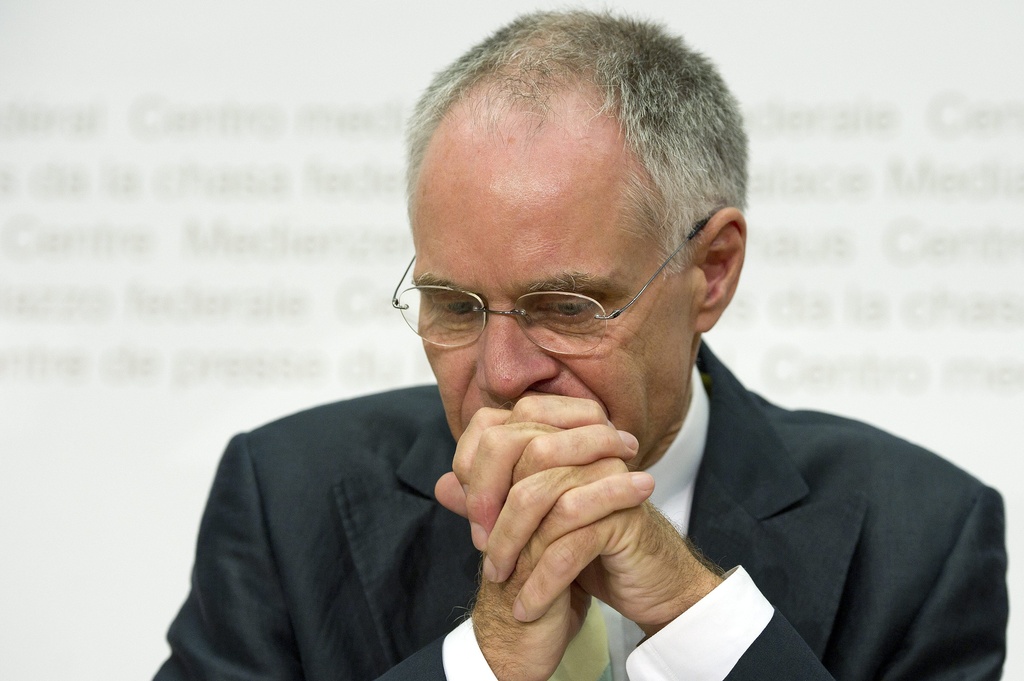Embattled finance minister bows out

Finance Minister Hans-Rudolf Merz has announced his resignation – the second cabinet member to step down this year.
Merz, who stands down in October, has held the post since his election nearly seven years ago and served as Swiss president in 2009.
“I used my summer break to take a difficult decision,” he told a news conference on Friday.
“I consider the timing to be right for my resignation,” he added.
Merz said he was pleased to say that the federal finances were in good shape and major steps had been taken to resolve a dispute with other countries over banking secrecy.
Parliament will have to choose his successor during its autumn session to begin on September 13.
Merz has come under sustained criticism from the public and the media over his handling of the crisis with the United States over tax evasion allegations involving the UBS bank.
Critics also accuse him for being slow to react to international pressure on Switzerland’s banking secrecy and they point out his failure to solve a major diplomatic crisis with Libya.
Cabinet seats
An achievement during his tenure was the negotiation of new agreements on double taxation with more than 20 countries after Switzerland eased banking secrecy laws in line with international standards.
Merz, 67, suffered a heart attack in September 2008 but returned to his post six weeks later.
He is one of two representatives of the centre-right Radical party in the seven-member cabinet, and is considered close to the business community.
In July, Transport Minister Moritz Leuenberger, a member of the centre-left Social Democrats, announced he would step down at the end of the year.
Five different parties are currently represented in the government. The Radicals and the Social Democrats have two seats each, while the centre-right Christian Democrats, the Conservative Democratic Party and the rightwing Swiss People’s Party hold the other three posts.
A traditional understanding between the main parties over the allocation of seats came to an end in 2003 leading to a increased fighting over cabinet posts.
The resignations come ahead of next year’s general election.
Claims
The Radical Party has praised Merz as “Europe’s most successful finance minister”, saying he had managed to reduce state debts by more than SFr20 billion ($19.3 billion) since 2003.
The Business Federation said a reform of the corporate tax system was a “milestone”.
However, the Social Democratic Party said Merz was leaving behind a series of unresolved issues, particularly over the UBS bank and the regulation of the financial sector.
The Swiss People’s Party and the Greens both said they would challenge Merz’s seat in the cabinet.
Urs Geiser, swissinfo.ch
Swiss cabinet ministers do not answer to their parties and there is no possibility to impeach them.
They are free to choose the moment of their resignation themselves and they enjoy considerable autonomy in the cabinet.
The cabinet members have to be confirmed in their posts every four years in the wake of parliamentary elections.

In compliance with the JTI standards
More: SWI swissinfo.ch certified by the Journalism Trust Initiative
















You can find an overview of ongoing debates with our journalists here . Please join us!
If you want to start a conversation about a topic raised in this article or want to report factual errors, email us at english@swissinfo.ch.